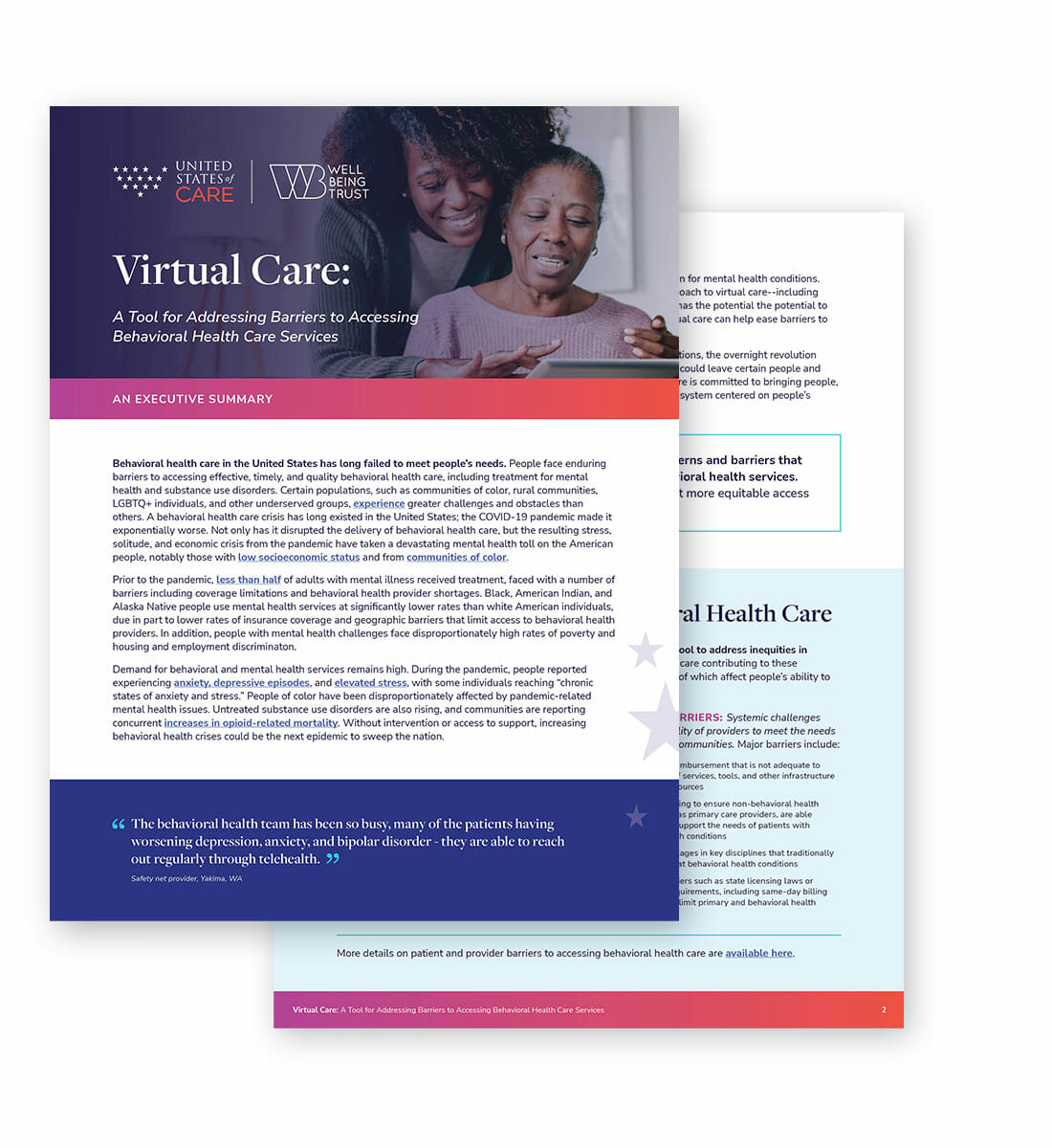Virtual Care and Mental Health:
Addressing Barriers to Accessing Behavioral Health Care Services
In partnership with Well Being Trust, United States of Care has worked with Third Horizon Strategies to complete more than a year of collaborative work exploring how virtual care can close gaps in health care access.
In particular, we explored the role of virtual care in providing effective, timely, and quality behavioral health care — including treatment for mental health and substance use disorder.

About the Research
Demand for behavioral and mental health services remains high and untreated substance use disorders are rising. During the pandemic, people are experiencing anxiety, depressive episodes, and elevated stress, with some individuals reaching “chronic states of anxiety and stress.” In fact, the most common use of telehealth services during the pandemic has been for mental health conditions.
At USofCare, we believe that a well-designed approach to virtual care — including telehealth, remote monitoring, and other digital forms of communication — has the potential to break down long-standing barriers to health care access.
In particular, virtual care can help ease barriers to treatment for mental health and substance use disorders. However, without careful attention to people-centered strategies and solutions, the overnight revolution that the pandemic unleashed in virtual health care access could leave certain people and communities further behind, including those that need it the most.
USofCare is committed to bringing people, policymakers, providers, and entrepreneurs together to build a virtual care system centered on people’s needs, closes gaps, and removes barriers to access.
View the Materials
These materials summarize our research on how virtual care tools could best be used to address behavioral health care access. We identify solutions and policy changes to decrease barriers so that all people can access personalized, understandable, and equitable behavioral health care.
- Executive Summary on Virtual Care: A Tool for Addressing Barriers to Accessing Behavioral Health Care Services
- Case Studies on virtual care for behavioral health
- Research Summary: Barriers to mental/behavioral health
- Research Summary: Behavioral Health Virtual Care Modalities and Policy Considerations
- Webinar: Action Steps on Virtual Care, Focus on Behavioral Health